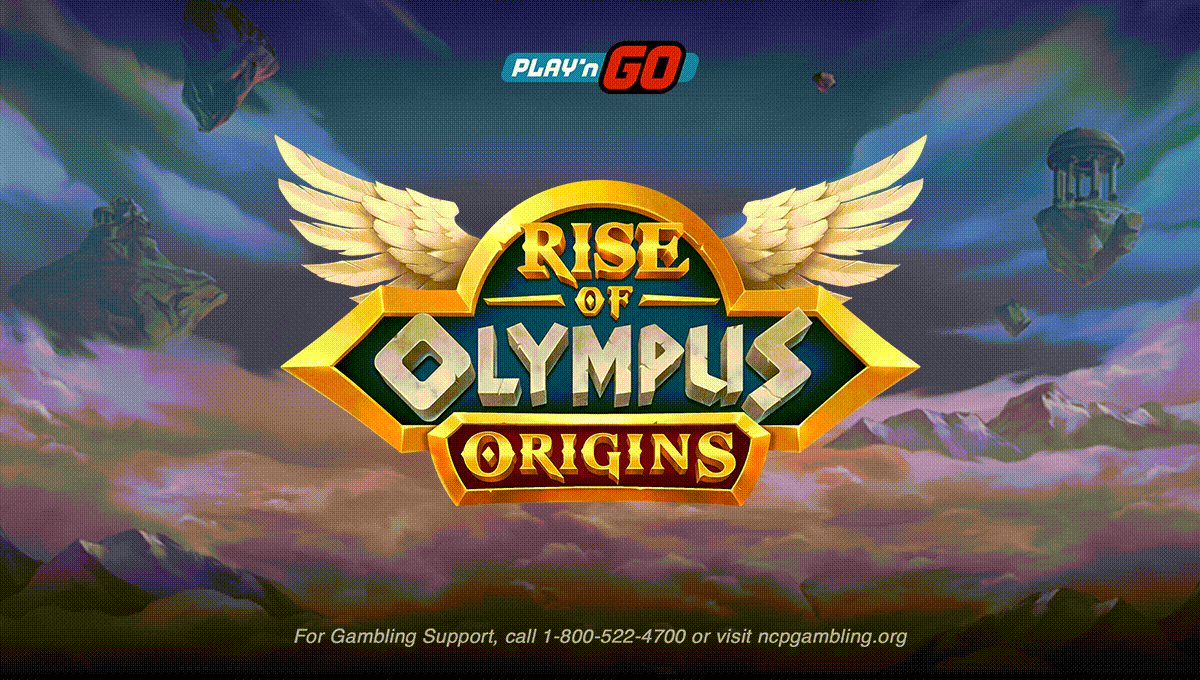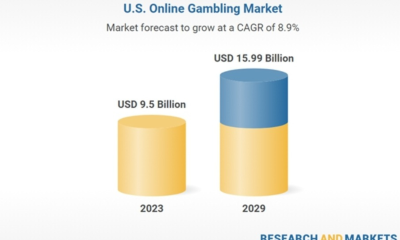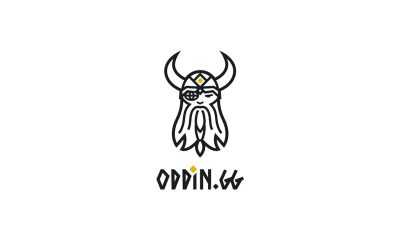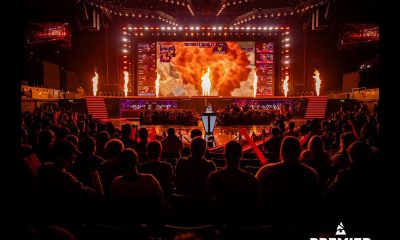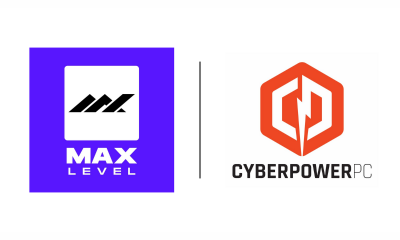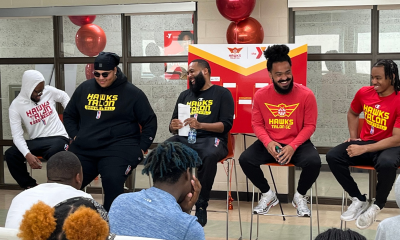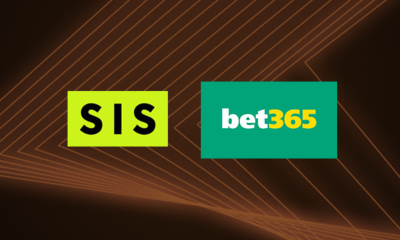eSports
HAWKS TALON GC ELIMINATED FROM THE TICKET, ENDS 2024 SEASON
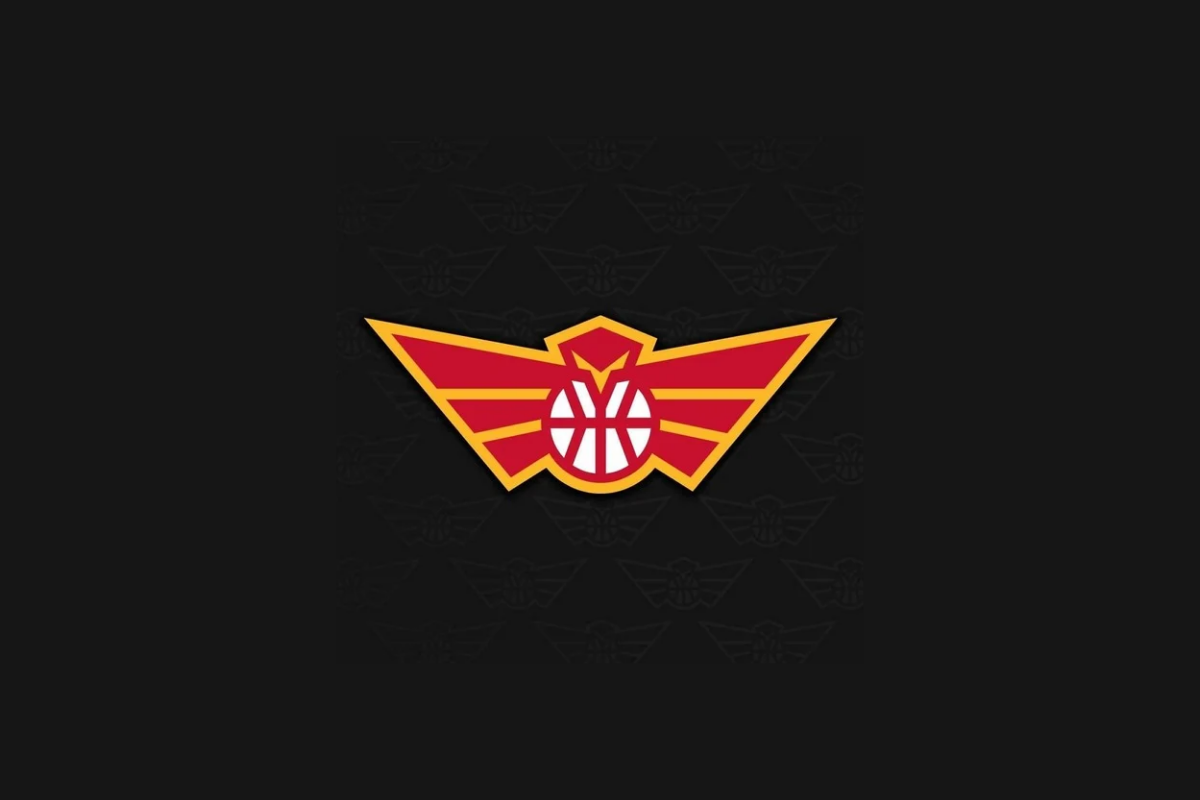
Hawks Talon GC, the official NBA 2K League affiliate of the Atlanta Hawks, were eliminated from the TICKET on Tuesday night after falling to the No. 5 Nets GC 88-79, ending their 2024 season.
Talon entered the last chance tournament as the No. 4 seed, amassing 60 points over the TIPOFF and TURN 5v5 tournaments.
“Ending the season in the TICKET is always a tough way to go out, but there are a ton of things we can take away,” said Hawks Talon Head Coach Ismael ‘MAELO’ Diaz Tolentino. “The way Bait, Duck, Low, and E all meshed with MDS in their first year with us is something to be proud of. Our guys fought throughout both threes and fives all season, and all of them should keep their heads up going into next year.”
Talon finished 3v3 gameplay with a 7-9 record over group and bracket play, including a 4-4 record in bracket play, and finished the 5v5 season with a 6-6 record over the TIPOFF and TURN.
During the 3v3 SLAM tournament, Talon finished as one of the top six teams, starting out 3-0 in bracket play and earning $8,000 from the prize pool.
Mark David “MDS” Smith led the Talon in scoring throughout the 5v5 season, averaging 28.0 points and 7.1 assists in 12 games. During the week of May 27-June 2, MDS earned Player of the Week honors behind a 60-point performance against Celtics Crossover Gaming, breaking the franchise record for most points in a game and the fifth most in NBA 2K League history. He also became only the second player in franchise history to win Player of the Week.
Ludlow “LOW” Samuels averaged a double-double, collecting a team-high 10.4 rebounds to go along with 13.5 points throughout the 5v5 season while Christopher “Duck” Charles dished out a team-high 9.5 assists.
Talon newcomer Elijah “Underratedgoat” Spears netted 12.3 points, while rookie Tyler “Baitpickk” Montague collected 6.9 points and 3.7 rebounds per game.
eSports
Community Gaming Joins Forces with Moonton as Official Esports Partner for Mobile Legends: Bang Bang
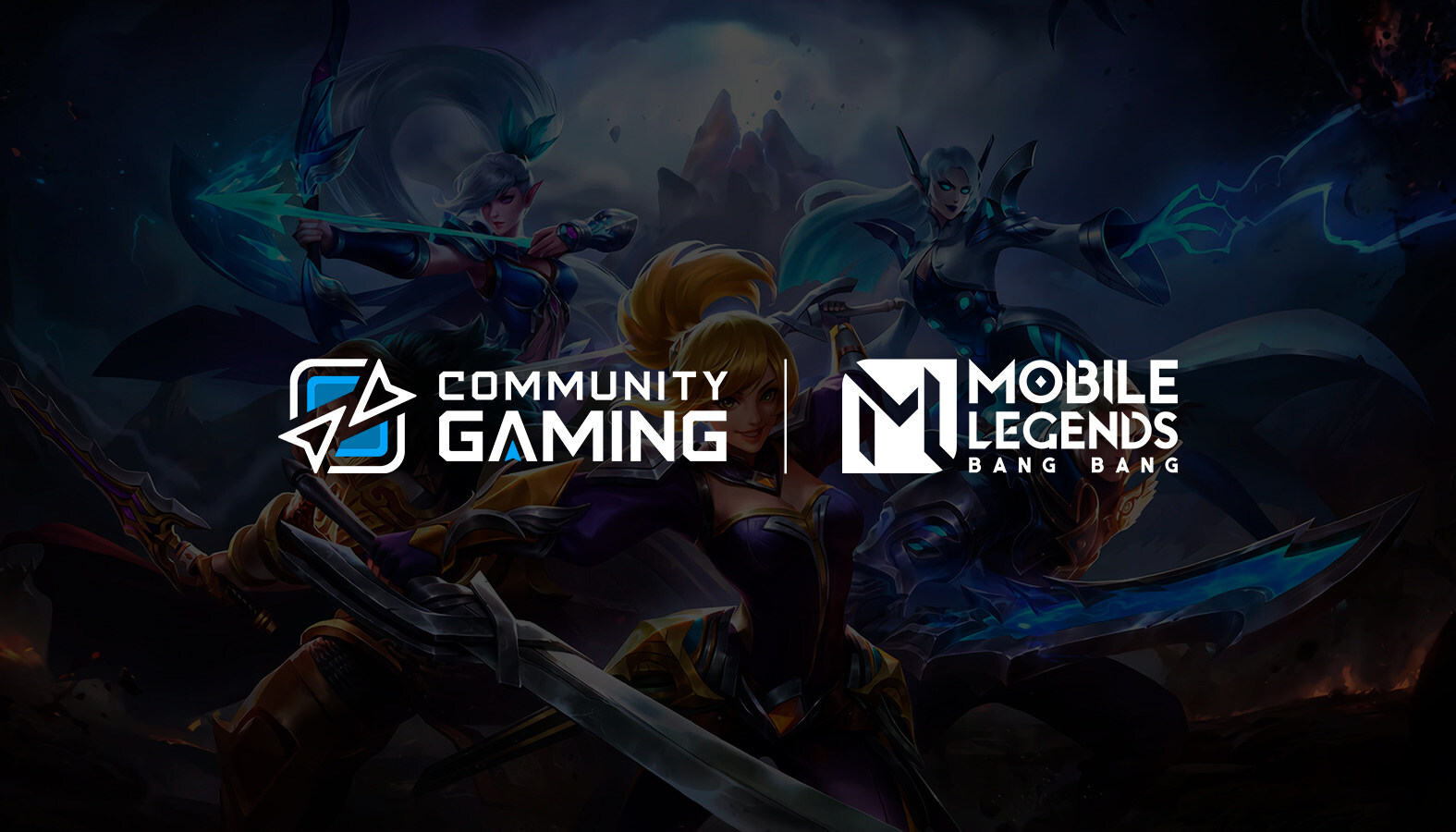
Community Gaming (CG), the leading esports platform for automated tournament payouts and sponsor of the Mobile Legends: Bang Bang’s professional league for the Latin America Region, MPL LATAM, now supports developing esports communities in Latin America in collaboration with Moonton.
This partnership is a significant boost to CG’s existing advantages associated with its grant program, a partner-backed initiative to provide organizers with economic resources based on the performance and growth of their local gaming communities. Tournament organizers can apply to receive platform support, prizes, in-game currency, items, and tournament professional assistance including “Tournament Mode,” a special setting on Mobile Legends: Bang Bang that grants organizers enhanced features, such as unlocking all available skins in the game for players to fully enjoy a complete and unique MLBB pro tournament experience.
Wei Xu, regional esports operation manager at Moonton, said: “We are excited to announce the partnership with Community Gaming. Community Gaming is the most accepted esports platform in our community in Latin America. We hope this partnership brings new experiences to the players.”
As MPL comes to its end this year, CG will also be collaborating with MLBB professional teams for a flash $4000 prize tournament set to enhance the visibility of the company’s services. This event marks a pivotal moment set to highlight CG’s preparedness to impact the professional MLBB scene.
Community Gaming and Moonton are no strangers to mutual cooperation. In the past both companies have partnered to develop the Dawn of Heroes Series, a set of events in 2021 and 2022 that offered qualifying slots to MLBB’s Signature Competition, Liga LATAM. The companies have also worked together on Peru’s University Tournament INTERU 2023 and currently Community Gaming hosts significant activity of MLBB Tournaments from over 12 countries on a monthly basis.
eSports
Esports player age verification should be simple

Despite the continuing professionalisation of esports, misconceptions about player age persist – particularly of underage pros playing in professional esports.
Back in 2021, the PandaScore whitepaper dug into the data around player age in professional esports and found that the average age of a pro player was just under 24 years old. By comparison, the same report noted that the average age for a men’s professional footballer was about 26 years old.
While there is no great gulf in player ages between esports and traditional sports, there’s more apprehension around this topic once there’s a keyboard or controller involved. There are good reasons behind this focus, but the truth is that a simple and straightforward product makes player age verification easy.
The reason behind the focus on player age
Compliance with player age requirements has been a particular concern as legalised sports and esports betting rolls out across the US. These are completely reasonable concerns, partly because of the state-by-state nature of American regulation, but also due to past compliance issues in the likes of ITF tennis.
Age compliance isn’t a challenge unique to esports. It does have younger players in the same way tennis does, so it’s a space that operators consider a potential risk area based on precedent. While it’s understandable to be vigilant about ensuring age compliance across your whole book, the reality in esports is it’s just like any other sport.
However, with this greater attention, it’s crucial for esports suppliers to have a simple, high-quality solution that is flexible for any jurisdiction – and not just treat it as a spreadsheet-based, tack-on service.
Importance in the US
It’s abundantly clear that if you want to ensure compliance in the US space, player age verification isn’t a nice to have, it’s an integral part of your product. Across each jurisdiction player age verification can vary – something we’ve seen in Europe as well such as Sweden’s rule that a match must have 60% of players over the age of 18 for an operator to offer match bets.
In sports, it’s fairly straightforward to implement but has been an oversight from sports data providers in the past. It’s quite easy to provide, it just requires collecting data from multiple, reputable sources outside of the match itself.
PandaScore has been collecting player age verification data since it was founded in 2017 to ensure compliance no matter the regulation, no matter the jurisdiction.
Embedding player age verification in your product
Ensuring age compliance was a founding principle for our product suite – we included it as a key datapoint in our API, which is the bedrock of our broader offering. Suppliers should have this embedded in their products, rather than an additional service.
PandaScore believes that offering player age verification as part of an API and integrated into your service means you can be more confident in your compliance not just for individual esports titles, but from match to match.
For us it’s simple: one of PandaScore’s founding principles is to not rely on only one single data source, but leverage multiple quality data sources that we can trust. We have a longstanding and highly developed process that guarantees a level of accuracy for player age verification that’s in line with regulation and gives operators the confidence that they’re compliant. Our practice of using multiple data sources means that double and triple-checking information to ensure player age compliance is in our nature.
With player age verification built into an API, operators can leverage the data to match the compliance needs of any given jurisdiction. This can be done by integrating player age data via the API, it can be included in their feed via our odds product with the flexibility to add exclusions where necessary, or if an operators wants it in a simper form, it can be done via request.
Player age verification might seem like a simple item, but is a compliance matter that’s essential to operating in a proper fashion. Noting the concerns and greater focus on player ages in esports, it’s something that’s important to get right: player age verification should be entrenched in esports products themselves to give operators the flexibility and simplicity that they need.
Author: Oliver Niner, Head of Sales at PandaScore.
eSports
CS2 Intel Extreme Masters Rio 2024 SuperComputer: NaVi to bounce back after Blast Fall Final loss
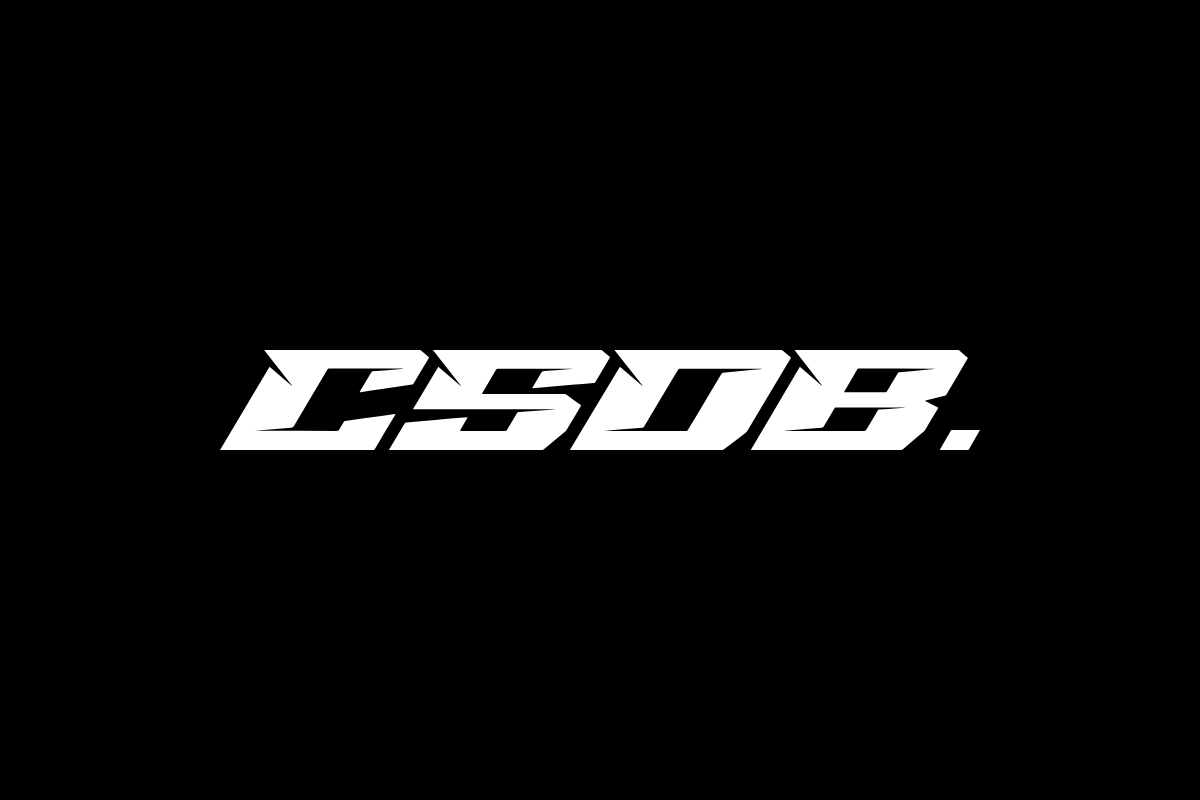
Final: Natus Vincere (36.5%) to beat Team Vitality (28.1%)
Semifinal 1: Natus Vincere (52.6%) to beat MOUZ (16.3%)
Semifinal 2: Team Vitality (47.7%) to beat G2 Esports (18.7%)
Quarterfinal 1: G2 Esports (39.8%) to beat FaZe Clan (32.8%)
Quarterfinal 2: MOUZ (35.9%) to beat Eternal Fire (24.7%)
Group stage:
-
Natus Vincere – 48.7% to finish 1st; 17.0% to finish 2nd; 84.1% to make playoffs
-
Team Vitality – 40.8% to finish 1st; 17.4% to finish 2nd; 77.7% to make playoffs
-
G2 Esports – 19.3% to finish 1st; 20.4% to finish 2nd; 56.7% to make playoffs
-
MOUZ – 14.5% to finish 1st; 21.8% to finish 2nd; 53.0% to make playoffs
-
FaZe Clan – 13.9% to finish 1st; 21.0% to finish 2nd; 50.2% to make playoffs
-
Eternal Flame – 40.7% to finish 1st; 16.2% to finish 2nd; 40.7% to make playoffs
-
Liquid – 16.3% to finish 7-8th; 35.7% to make playoffs
-
Virtus.pro – 15.4% to finish 7-8th; 29.9% to make playoffs
-
Astralis – 28.9% to finish 9-12th; 31.5% to make playoffs
-
The MongolZ – 32.7% to finish 9-12th; 25.4% to make playoffs
-
Complexity – 34.3% to finish 9-12th; 21.2% to make playoffs
-
Heroic – 26.8% to finish 9-12th; 23.5% to make playoffs
-
paiN – 36.5% to finish 13-16th; 21.0% to make playoffs
-
FURIA – 36.4% to finish 13-16th; 20.9% to make playoffs
-
9z – 44.7% to finish 13-16th; 14.6% to make playoffs
-
Imperial – 49.1% to finish 13-16th; 13.9% to make playoffs
It has been quite the run for NaVi despite their loss with back to back grand finals in recent weeks but CSDB.gg’s predictive model suggests there will be no let up for the Ukrainian esports organisation.
G2 will also be looking to build more momentum in preparation for Majors season with NiKo on a quest to finally get over the line this year to win his first major title. Hopefully Rio won’t have to see a repeat of his reaction in the semifinals at BLAST Premier Fall Final 2024 where he punched a hole in a table after losing out to Team Vitality in a key moment.
However, the hosts of Intel Extreme Masters Rio 2024 may want to lockdown any nearby furniture and reinforce their desks if G2 are set for disappointment at the semifinals stage as predicted by the CSDB.gg SuperComputer.
A victory in Rio could be even more consequential for how the end of the year shapes up for the leading teams on the circuit. The Valve Global rankings have both teams close at the very top (NaVi at 1988 and G2 at 1953) meaning a win for either team could hand them a key advantage when it comes to who enters the Majors as top seed.
Back-to-back wins in T1 events for G2, should they prosper in Rio, would set the Berlin-based team on an incredible trajectory going into the winter months.
Meanwhile, Brazilian hopes for glory look slight according to the CSDB.gg SuperComputer with FURIA, the team co-owned by Neymar, having only been given a 20.9% chance of even making the playoffs.
They are the leading contenders to make an impact for the home crowd but there are other teams flying the flag for Brazil with paiN and Imperial also set to give it their best to give local fans something to cheer on.
In terms of forecasted matchups of note, G2 and FaZe Clan could offer up a fascinating encounter in the quarterfinals should both teams qualify, with each organisation rated as having a strong chance of making the semis with little to separate them should they meet.
How was the CSDB.gg CS2 Tournament SuperComputer created?
The CSDB.gg CS2 Tournament SuperComputer is a predictive model created using world ranking points, team quality ratings and performance trends. An element of randomness is also included in the model to avoid the best teams and players always winning, to reflect the fact that upsets can happen.
Every tournament is simulated 1,000 times with the results aggregated into a percentage rating of the chances teams or players have to achieve the predicted result.
-

 Interviews7 days ago
Interviews7 days agoAxel Antillon: Our Peru entry is a major milestone for WA.Technology
-
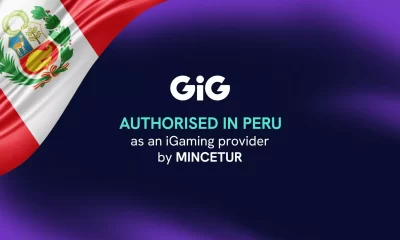
 Compliance Updates6 days ago
Compliance Updates6 days agoGiG grows regulated market footprint with new B2B supplier authorisation for Peru
-

 Latest News5 days ago
Latest News5 days agoHarrah’s Cherokee Valley River’s New Hotel Tower Nears Completion
-

 Latest News6 days ago
Latest News6 days agoPatrick Homm to Lead Scientific Games International Lottery Systems Technology
-
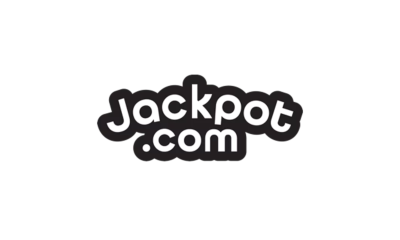
 Latest News6 days ago
Latest News6 days agoLottery Courier Jackpot.com Launches Digital “Scratchers”
-

 Latest News2 days ago
Latest News2 days agoLos Angeles Rams launch Next Gen Stats-powered, in-stadium highlights through new collaboration with Genius Sports
-
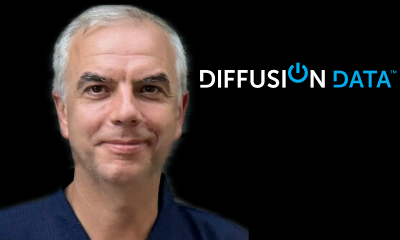
 Latest News6 days ago
Latest News6 days agoDiffusionData Appoints Raphael Vergnaud as CRO
-
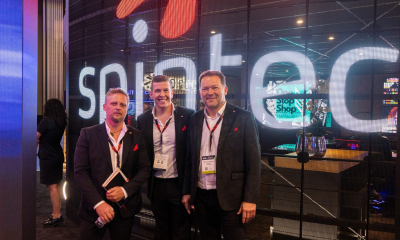
 Press Releases6 days ago
Press Releases6 days agoSpintec Introduces a Host of New Products at G2E


